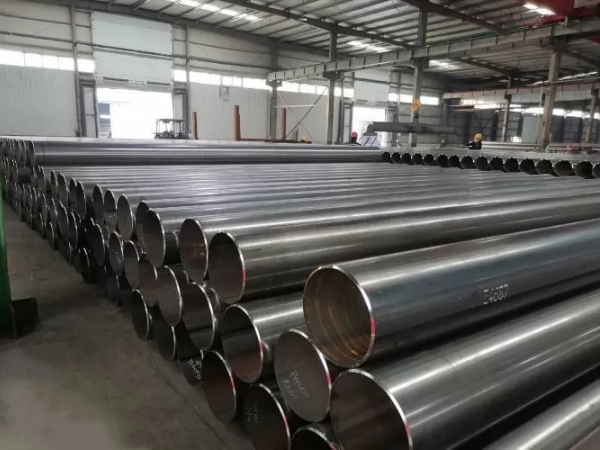The raw material used in the manufacturing of Electric Resistance Welded (ERW) steel pipes has a significant influence on the quality, performance, and characteristics of the finished product. The choice of raw material impacts several key aspects of ERW steel pipes, including their strength, corrosion resistance, weldability, and suitability for specific applications. The following introduces the impact of raw materials on ERW steel pipes.

Steel Grade:
The type and quality of the steel used as the raw material are critical. Different steel grades, such as carbon steel, low alloy steel, and stainless steel, have distinct properties and are chosen based on the intended application of the ERW pipe.
Strength and Durability:
The strength of the steel used in the pipe affects its load-bearing capacity and durability. High-strength steel is used for applications where structural integrity and load-bearing capacity are crucial.
Corrosion Resistance:
The choice of raw material also impacts the pipe's resistance to corrosion. Materials like stainless steel are highly corrosion-resistant, making them suitable for environments where exposure to moisture and corrosive substances is a concern.
Weldability:
The raw material's chemical composition, including the carbon content and alloying elements, can affect the ease of welding. Steel with suitable weldability properties is chosen to ensure that the welding process results in strong and durable joints.
Ductility:
Ductility, which is the ability of the steel to deform without fracturing, is influenced by the raw material's composition. Ductile steel is often preferred for applications where the pipe may need to bend or deform without breaking.
Impact Resistance:
Some applications require ERW steel pipes to withstand impact and shock loads. The raw material's toughness and impact resistance play a role in how well the pipe can handle these conditions.
Temperature Resistance:
Depending on the intended use, ERW steel pipes may need to withstand high or low temperatures. The raw material's properties should be suitable for the specified temperature range.
Chemical Compatibility:
For applications where the pipe will transport chemicals or corrosive substances, the raw material must be chosen to be chemically compatible with the transported fluids.
Regulatory Compliance:
In many industries, including oil and gas, construction, and manufacturing, there are regulatory requirements and industry standards that specify the type and quality of steel that can be used for ERW pipes.
It's important to note that the selection of raw material is a critical aspect of ERW steel pipe manufacturing, and it should align with the specific requirements of the intended application. Additionally, the manufacturing process, including welding and heat treatment, can further influence the properties of the final product, and strict quality control measures are essential to ensure that the ERW pipes meet the necessary specifications and standards.